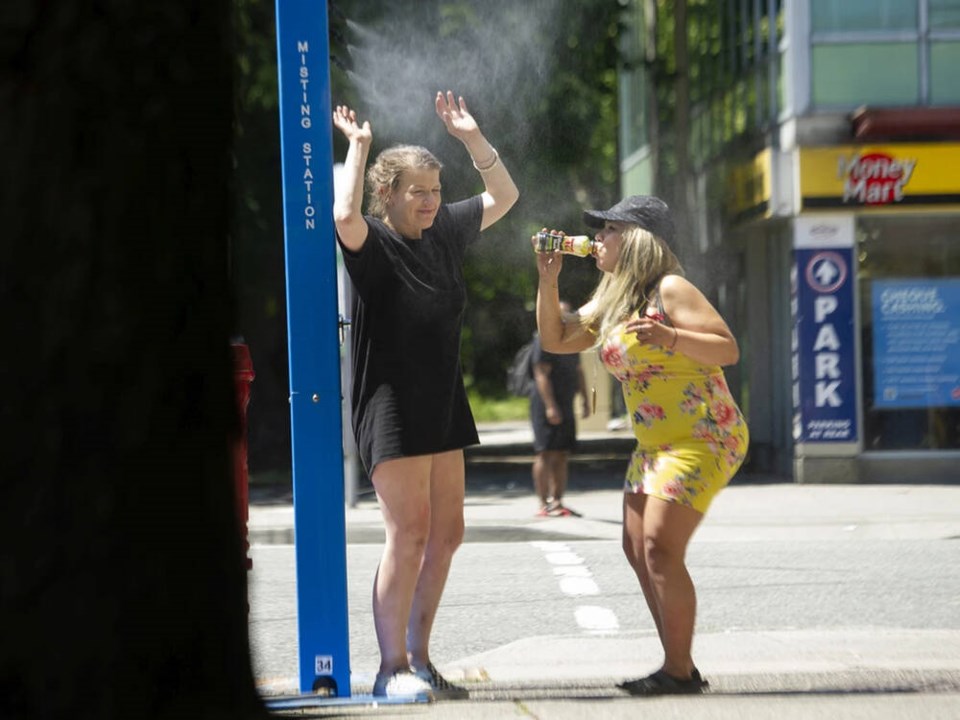VANCOUVER — Calls to B.C.’s 911 emergency line had people waiting for up to three hours Saturday for an ambulance — once they ran the gauntlet of half-hour wait times to speak to a call-taker, according to a dispatcher.
“Today was the worst day we’ve had so far this year,” said one Vancouver dispatcher who described up to 27 calls on hold and not being able to get to them fast enough.
Postmedia has agreed not to reveal the dispatcher’s name or gender due to fears of employment reprisals. The dispatcher said there were only about 12 people answering 911 calls across the province on Saturday.
Calls to 911 increase on weekends, particularly when the weather is nice. Of the Lower Mainland ambulance fleet, about one-quarter of them were unstaffed, the dispatcher said.
A readerboard at B.C. Emergency Health Services’ dispatch centre shows how many calls are waiting to be answered and it showed as many as 27.
The B.C. Ministry of Health referred questions to E-Comm 911, a non-profit agency that oversees call operations, and the Provincial Health Services Authority, which has responsibility for the ambulance service.
E-Comm 911 officials said they had not seen extensive delays during the weekend. The 911 service that E-Comm operates takes initial calls and then directs them to police, fire or ambulance. Emergency medical dispatchers take emergency calls and send out ambulances.
The Provincial Health Service Authority did not immediately respond Sunday to Postmedia questions.
Troy Clifford, the president of the Ambulance Paramedics of B.C., which also represents the emergency medical dispatchers, said Sunday that there have not been significant spikes in wait times recently but longer wait times on weekends and in the summer is consistent with past experience, especially when temperatures rise.
Clifford noted that while the province has provided funding to hire more paramedics and dispatchers following last year’s heat dome, hiring staff has been difficult because of the burnout and stress front-line workers experience and also because wages in other similar areas such as police, firefighting and nursing are 30 per cent higher.
“The problem is in recruiting into our profession,” said Clifford. “We’ve lagged behind so far in the past 20 years.”
Temperatures in B.C. did not reach heat-dome levels this weekend, but Environment Canada did issue a heat warning for Metro Vancouver and the Fraser Valley that lasts until Monday. Temperatures in the Fraser Valley were expected to edge into the 30s.
Donald Grant, the president of the Emergency Communications Professionals of B.C., said there had been some delay in referring calls to police during the weekend. He also pointed to staffing shortages and difficulty in recruiting new call takers because of job conditions and wages that are higher in other areas.
“Wait times haven’t been good,” said Grant.
The dispatcher who spoke to Postmedia said it’s difficult to deliver the best service when wait times go up. “You’re sitting there wondering what each of those 27 calls are. It could be someone who tripped and fell and has a broken arm, or it could be someone who just found their child hanging from the rafters,” the dispatcher said.
The dispatcher described the stress of trying to do their best under challenging circumstances.
“You don’t know what is waiting there. You have that anxiety. You want to be able to do the best for that person on the phone and you want to try to help everybody in a way you just can’t.
“It got to the point where the fire department was trying to phone us and give us calls because they would just come across things and they couldn’t get through to our dispatch centre because there was nobody to answer the phone. The pressure we were seeing today tells me that if we experience another event like the heat dome we would see the exact same system collapse as last time.”
On a normal day, the dispatcher said call-takers should be able to answer on the first ring, and the target is to answer within five seconds 98 per cent of the time.
During last summer’s heat dome, the dispatcher said staff “held it together” with numerous staff rescheduling vacations “and shifting their lives to keep the organization afloat. People aren’t willing do that two years in a row. It’s not healthy to put off taking time off to do a favour to B.C. ambulance.”
In November 2021, the province hired 85 new paramedics and 65 full-time dispatchers after EHS came under fire for slow response times during the heat-dome last summer that left hundreds dead.
Also in 2021 the stressful conditions faced by ambulance paramedics and dispatchers led to 25 per cent of them being off the job due to PTSD and stress leave, according to the Ambulance Paramedics of B.C., which prompted BCEHS to announce a long-term plan to increase mental health support for paramedics and other first responders.
In 2020, 55 additional ambulances and crews for remote and Indigenous communities were announced, as well as buying new monitors and defibrillators for some rural ambulances.
But the dispatchers noted: “We have ambulances parked at stations because there’s nobody to respond to calls in them. It doesn’t solve the problem that there aren’t enough call-takers, dispatchers and paramedics and it doesn’t solve the problem the Lower Mainland is not well equipped to handle any kind of large scale event.”



